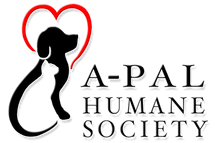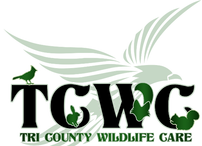SKUNKS are nocturnal creatures and mostly active at night. They are gentle creatures with poor eyesight. They are also poor climbers, so wiring to exclude them does not need to be more than 3 feet high.
Skunks are mostly seen at night, but daytime sightings are not that unusual. You should only be concerned if the skunk is acting in an unusual manner such as exhibiting limb paralysis, circling, aggression, etc. If this is seen, you should call Animal Control for assistance.
Skunks are one of 4 mammals considered to be rabies vectors, but only a very small number will carry rabies. They are beneficial creatures because they eat insects and rodents.
Skunks are omnivores, so they will forage for a variety of foods. Some common solutions to prowling are to keep garbage cans secured and pet food indoors. If a skunk is inside a garbage can and unable to get out, you can gently turn the can on its side pointing the open end away from you and the skunk will usually just amble off.
If the skunk has something stuck on its head, you may use the trash can lid to hold the tail down while standing behind the skunk. Gently pull the container off and allow the skunk to move away.
To deter skunks, remove places they can hide such as debris piles or log and compost piles. Seal up spaces where they might choose to take up residence under homes, sheds and decks.
Once skunks have taken up residence, you will want to be sure that they do not have young prior to creating a one way exit or utilizing methods to get them to move out. Moth balls and ammonia as well as noise and light can all be used to make their den uncomfortable.
One way doors and wire pathways that allow the skunks to squeeze out to exit, but do not allow reentry may be used once babies are following the mother or if only adults are present. Skunk warning signs can include stomping feet, turning their backside to a threat and lifting their tail.
Dogs will often ignore these warning signs and become a target of spraying. To protect your pets, keep rabies shots current and keep wildlife at a distance.
Please call us for assistance with your unique wildlife problem, 209-283-3245.
Skunks are mostly seen at night, but daytime sightings are not that unusual. You should only be concerned if the skunk is acting in an unusual manner such as exhibiting limb paralysis, circling, aggression, etc. If this is seen, you should call Animal Control for assistance.
Skunks are one of 4 mammals considered to be rabies vectors, but only a very small number will carry rabies. They are beneficial creatures because they eat insects and rodents.
Skunks are omnivores, so they will forage for a variety of foods. Some common solutions to prowling are to keep garbage cans secured and pet food indoors. If a skunk is inside a garbage can and unable to get out, you can gently turn the can on its side pointing the open end away from you and the skunk will usually just amble off.
If the skunk has something stuck on its head, you may use the trash can lid to hold the tail down while standing behind the skunk. Gently pull the container off and allow the skunk to move away.
To deter skunks, remove places they can hide such as debris piles or log and compost piles. Seal up spaces where they might choose to take up residence under homes, sheds and decks.
Once skunks have taken up residence, you will want to be sure that they do not have young prior to creating a one way exit or utilizing methods to get them to move out. Moth balls and ammonia as well as noise and light can all be used to make their den uncomfortable.
One way doors and wire pathways that allow the skunks to squeeze out to exit, but do not allow reentry may be used once babies are following the mother or if only adults are present. Skunk warning signs can include stomping feet, turning their backside to a threat and lifting their tail.
Dogs will often ignore these warning signs and become a target of spraying. To protect your pets, keep rabies shots current and keep wildlife at a distance.
Please call us for assistance with your unique wildlife problem, 209-283-3245.


